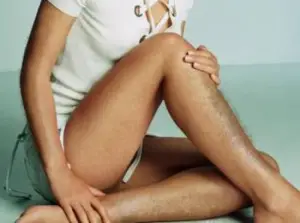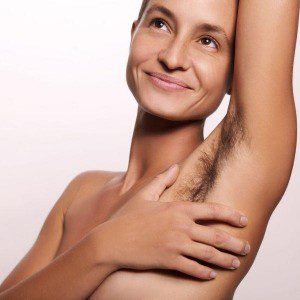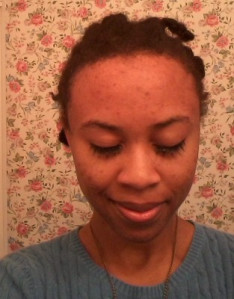Guest writer for Wake Up World
The word ’empower’ is defined as: “to give (someone) authority or power”; “to make (someone) stronger and more confident”.
As a woman living in the United States, I experience certain roles, standards, and beliefs regarding my own empowerment and my gender which were taught to me from childhood onward. These experiences are common among other women throughout the United States (and other western countries) as well. These belief systems and standards were passed down from our earlier generations to us, one cycle at a time.
Some of these inherited experiences create the opposite of the definition I shared above. They are presented in one manner and in fact are really diminishing our power. This occurs through instilling negative expectations of self and others, social pressures, perceived or real rules and laws of location, and personal fears and doubts that are systematized – and subsequently shared with others.
The focus of this article is the expectations put on women’s bodies, and what amount of authorship – and therefore empowerment – we have over our bodies.
[pro_ad_display_adzone id=”110028″]
Women and Body Hair
As our bodies mature during tween and teenaged hood, we become aware of our hair growing in places beyond our heads. And although this is a natural part of reaching physical maturity, most parents automatically teach their young girls that this natural occurrence is something to be managed and taken care of — and is therefore considered foreign, unacceptable, unattractive and unfeminine.
My parents, and others, typically provide their daughters with one option: any new hair grown must be shaved. The location generally starts with legs, armpits, and facial hair. This focus typically stems and grows as the young lady matures. This is enforced either by constant suggestion to shave, shaming the young lady to shave, normalizing hairless bodies, and providing no positive examples of women who choose to keep hair on their legs and other body parts – and who are still respected, desired romantically, and successful in life.
This normalizing of outside opinions of you, dictating and suggesting how to manage a woman’s body, tends to then be enforced by the peer group. An example of this social popularity – who is popular or not, and who is made fun of for looking ‘masculine’ or ‘un-womanly’ – just for having hair showing on body parts that are deemed not natural or acceptable. From here, potential and future romantic partners can also reinforce this belief system by complimenting a woman’s smooth hairless skin, or acting disinterested in romantic or sexual relations when the women might attempt to grow her leg hair, or has any hair on her face.
Growing up, one of my female extended-family members had visible lip hair before the age of 10 years old. Already, before getting into elementary school, her peer group was actively shaming her and teasing her for what naturally grows on her body, and her decision to keep her natural hair. She begged her mom to wax her ‘moustache’, and her mom at the time said she was too young for that and asked why she desired this – to which my young relative said “because others made fun of me for having hair there”.
 Already, before the age of 10, this young woman learned through experience that she was deviant or wrong for being hairy in certain places of her body, that she had to gain approval from others outside of herself, and had to alter and present her body in an ‘acceptable’ way they (society) deemed appropriate.
Already, before the age of 10, this young woman learned through experience that she was deviant or wrong for being hairy in certain places of her body, that she had to gain approval from others outside of herself, and had to alter and present her body in an ‘acceptable’ way they (society) deemed appropriate.
Your Her-story
From my perspective and experience, being an empowered woman entails looking at your her-story, acknowledging how your world supports certain body-image beliefs, asking yourself “is this belief serving you and lighting you up?” and taking the empowered option to reject this idea if it does not serve you.
In this context, being empowered – authoring your own life – is being a beacon of alternative choice for other women and showing, merely by walking around appearing as you choose, that there are other options than fitting the socially-normalized hair and body image. Taking back choice, power, and authorship of your body can start as simple as this, and in this way, having hair on your body can be an act of self-empowerment, spirituality and deep connection to your Creator.
In my next article I will share my personal journey of body and hair image, how I found my fiction and my truths, and ultimately reclaimed my authorship of my body.
Also by Jessica Crystal Joy:
- Body Image – Expectation or Conscious Choice?
- Essential Oils for Enhanced Focus, Clarity and Concentration
About the author:
Jessica Crystal Joy is a feminine empowerment educator that has been studying spiritual and self-improvement work since 2001. She provides articles, workshops, and presentations geared towards helping women become confident in speaking their desires and requirements in their life, using their intuition and deep connection with their bodies.
Jessica is known for quickly creating an environment of safety and expansion, to help her clients go beyond their past limited belief systems while explicitly and providing practical ways to be and live from a deeper empowered state of being. She has a B.A. in Psychology and is a Certified Tantra Educator, Certified Intuitive Guide, a member of the Holistic Living Network, a yogi, creative writer for New Earth Media, blogger, professional speaker, essential oils expert, and vegan, and incorporates many tools of Mastery Systems in her work.
For more articles and ways to work with Jessica, check out her website jessicacrystaljoy.com.
[pro_ad_display_adzone id=”110027″]








